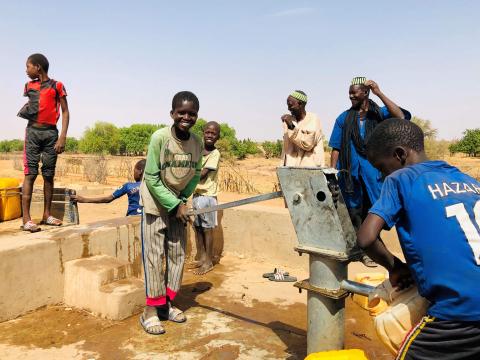Water is the life

World Vision Mali works to provide drinking water to the communities through the installation of hand pumps, boreholes and water supplies in the Cluster of Diéma (Diéma, Bèma and Djangouté),
Since October 2002, World Vision Mali has been implementing a water, hygiene and sanitation (AEPHA) program called MIWASH (Mali Integrated Water, Sanitation and Hygiene). It it is currently in its fourth phase (2021 to 2025).
Through the previous phases of this program, WV Mali has completed 2,480 improved water points including 1,895 new boreholes equipped with manual pumps, 370 rehabilitated hand pumps and 700 standpipes from solar mechanized systems, as of September 30, 2020.
In total, nearly 1,500,000 people have access to safe drinking water through World Vision's interventions in Mali.
From Diagounté Camara to Farabougou, via Bema and Kongo to name but a few, the MI-Wash programme has come to the aid of the populations of those areas. Schools, health centres and municipalities have benefited from water supply for the well-being of the beneficiary populations.
Diéma is 346 Km away from Bamako. It is part of the Kayes region. Here, the populations were lacking drinking water and consumed unsafe water that gives them a lot of diseases (Dysentery, stomach aches, bilharzia...)
With World Vision's interventions in this area through the MI-Wash project, populations has now access to drinking water.
Women and children who were travelling miles in search of drinking water, have seen their chores come to an end because they have clean water nearby now, with the installation of standpipes or water supplies for other communities.
"We used to wake up at 3 am to travel 5 km to search drinking water in the nearest spring. Thanks to World Vision and the MI–Wash Program, we have water nearby, in quality and quantity. Our children are no longer getting sick, and we don't need to go to look for water anymore and to get up neither," said one beneficiary.
They will not drink dirty water from wells anymore. With the boreholes erected by the MI–Wash program, the quality of water is controlled upstream before any consumption whatsoever.